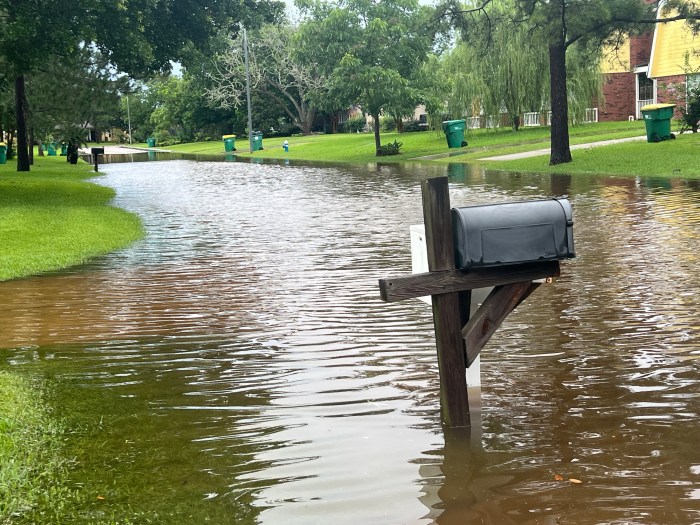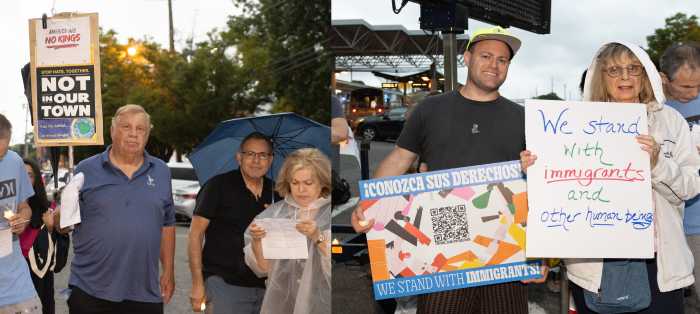Adopting a tactic that has been used by officials ranging from Sarah Palin to staffers of New Jersey Gov. Chris Christie, aides to New York Gov. Andrew Cuomo are sending emails from private accounts to conduct official business.
I know because I got one myself. And three other people who interact with the governor’s office on policy or media matters told me they have too. None of the others wanted to be named.
The tactic appears to be another item in the toolbox of an administration that, despite Cuomo’s early vows of unprecedented transparency, has become known for an obsession with secrecy. Emailing from private accounts can help officials hide communications and discussions that are supposed to be available to the public.
“Government business should never be conducted through private email accounts. Not only does it make it difficult to retrieve what is a government record, but it just invites the suspicion that a government employee is attempting to evade accountability by supervisors and the public,” said Christopher Dunn of the New York Civil Liberties Union, a frequent requester of records under the state’s Freedom of Information Law.
Emailing from private accounts also may violate state policy. State employees are not to “use a personal email account to conduct State business unless explicitly authorized,” according to a policy bearing the governor’s name published by the Office of Information Technology Services.
The Cuomo administration declined to comment on whether any employees are authorized to use private accounts.
Back when he was running for governor, Cuomo pledged, “We must use technology to bring more sunlight to the operation of government.”
The governor himself uses a BlackBerry messaging system that does not save messages to communicate with aides, the Daily News reported in 2012. Under the Freedom of Information Law, those records would typically not have to be released because there is an exemption for internal deliberative material.
But emails with anyone outside of the administration—such as lobbyists, company executives, or reporters—usually have to be made public upon request. It is for those communications, with people outside the administration, that private email accounts have been used.
Last year, I was poking around on a possible story and filed some public records requests that sought emails from Director of State Operations Howard Glaser, a top Cuomo adviser. One day in October, just hours after filing a request with the governor’s office, an email appeared in my inbox from Glaser himself.
The email, inquiring what I was working on, was sent from a @glasergroup.net address rather than a government account. The note had a signature line about not using the email address for official business (even though it appeared to be doing just that). My interest was piqued.
So I filed a request under the state’s Freedom of Information Law, asking for all records sent to and from Glaser’s private account. It is not supposed to matter if an email is sent from an official account or a private one: If it pertains to government business, it typically has to be released.
A couple of months later, the Cuomo administration responded with a terse denial: “Please be advised that the New York State Executive Chamber has conducted a diligent search, but does not possess records responsive to your request.”
I appealed, noting that I had in my possession a record responsive to the request 2013 Glaser’s email to me 2013 and included it as an attachment.
The administration upheld its original denial, now citing a retention issue.
“[T]he fact that this record is in your possession does not mean that the Chamber failed to produce a responsive record in its possession. Emails and certain other correspondence are not required to be preserved indefinitely,” the March letter said.
When I asked about the email this month, Cuomo spokesman Rich Azzopardi took a different tack, now disputing that Glaser was emailing me in his official capacity at all and calling the email “informal.”
“It would be inaccurate to characterize Howard’s email as official business—as he noted, your official business was being handled by the FOIL office, not him,” Azzopardi said.
But I have no personal relationship with Glaser, and my Freedom of Information Law requests focused only on his activities as a state official. When I recently asked Glaser about his email practices, he said, “I don’t use personal email to conduct official business.” He would not say how he defines “official business.”
In its letter denying my request for emails from Glaser’s private account, the administration cited the general retention policy of the State Archives. That policy says that “many email communications are not records and are therefore suitable for immediate destruction” but also that those emails which are records must be preserved.
So how does one determine which emails are “records”?
The governor’s office seems to take a particularly narrow view. The governor’s policy says that emails are only “records” if they are formal documents like press releases and nominations. Azzopardi, the Cuomo spokesman, said: “Official email is not required to be retained unless it meets the definition of a particular kind of record (eg—contract), consistent with the State Archives policy.”
But the Archives, which Cuomo’s office itself cited, takes a more expansive view, even as state law gives the governor leeway to determine which records should be kept.
Quoting the official definition of records, Archives spokeswoman Antonia Valentine said an email is a record if it is created “in connection with the transaction of public business (and provides) 2026 evidence of the organization, functions, policies, decisions, procedures, operations, or other activities (of an agency).”
In practice, Glaser seems to be either eschewing his official email account or promptly deleting messages of substance. When I asked for a 10-day sample of emails from Glaser’s official account, I got back little actual communication: 147 pages that are largely filled with newsletters, press releases, and the occasional terse email to set up a phone call.
The use of private accounts can result in even more roadblocks when an official leaves the government. (Glaser is reportedly leaving the administration in June.)
The issue has come up before.
In 2007, executives from the insurance giant AIG filed a public records request with the Office of the Attorney General, seeking, among other things, former Attorney General Eliot Spitzer’s communications with the press from the period when he had sued the insurance giant. That request was resisted for years by Spitzer’s successor as attorney general: Andrew Cuomo.
While Cuomo’s office eventually released emails sent from official accounts, it maintained that Spitzer’s use of a private account put any of those emails beyond its reach.
“[T]he reality is that the Office of the Attorney General lacks access to this account and possession of whatever e-mails it may contain, thus rendering them beyond the scope of petitioner’s FOIL request both practically and legally,” Cuomo’s office said in a 2009 court filing.
A judge ruled against the attorney general’s office, which has appealed. Seven years since the original request, the case is still in the courts and Spitzer’s private email account—which he was known to use in his capacity as a state official—has never been searched for records.
Lawyers for Spitzer joined the case this year, arguing in a March filing that because Spitzer is now a former employee and a private citizen, the Freedom of Information Law doesn’t apply.
Beyond the governor’s office, the state is reportedly moving toward an email system that would automatically delete emails after 90 days except for those marked by users to save.
It’s not clear how that process would work or how the state will ensure that records are not destroyed. The Office of Information and Technology Services declined to provide the memo describing the new policy, requiring that I file a formal public records request to get it.
Transparency advocates have criticized 90 days as too short a period because emails may only become relevant months later after a scandal or other event.
A document on the IT office’s website references the possibility in a state email system for “recovery of deleted mailbox contents for the length of the retention period”—another capability that would not exist for officials using private accounts.
Across the river in New Jersey, private email accounts are at the center of the Bridgegate scandal.
The infamous “Time for some traffic problems in Fort Lee” email was sent from a Christie aide’s Yahoo account to another official’s Gmail account. That tactic held off public access to the email for a time.
In December, the Christie administration claimed it did not have records in response to a request from the Record of Bergen, N.J. The emails became public later, only after the officials were subpoenaed by the state Assembly.
If you have gotten emails from the private account of an official in the governor’s office or other state or city agencies, email me at justin@propublica.org.


































